Festival of Riches: Cannes Premieres by Godard, Wenders, Scorsese and More
Our critic’s top picks from this year’s stacked program.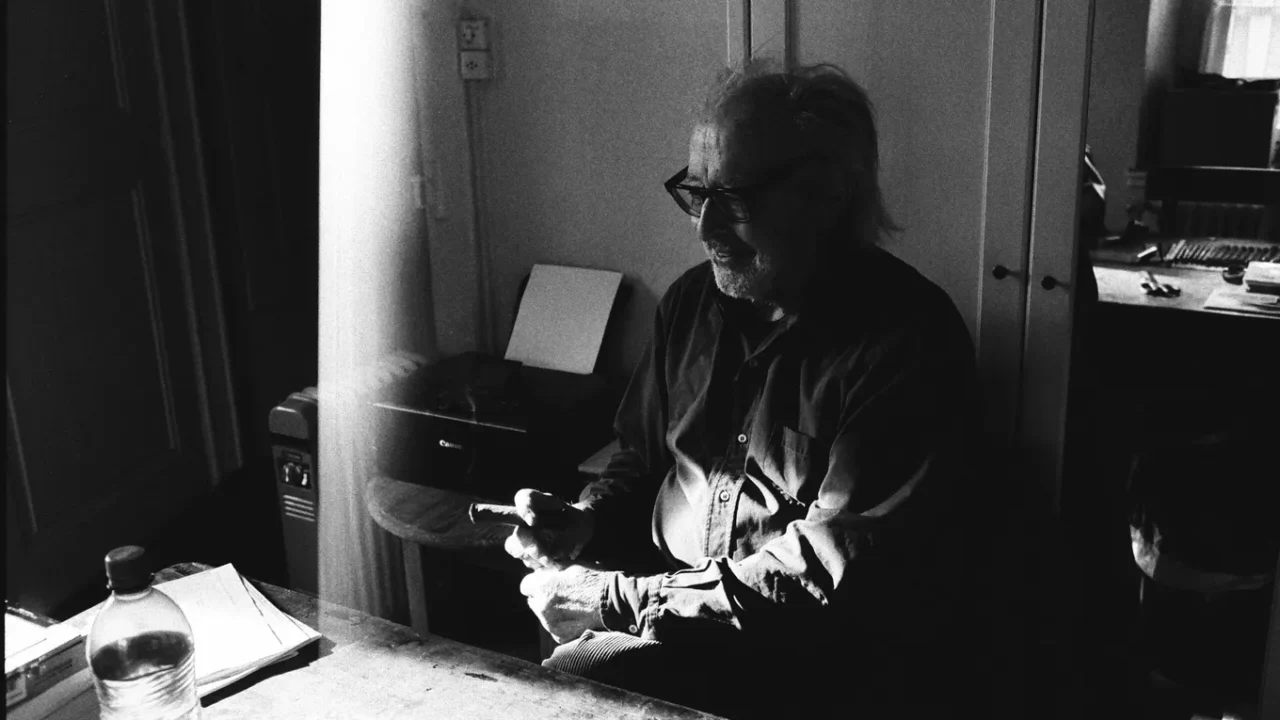 Jean-Luc Godard admires a cigar. Jean-Luc Godard, Saint Laurent.
Jean-Luc Godard admires a cigar. Jean-Luc Godard, Saint Laurent.
Cannes has long been the premier venue for the best in global cinema, and this year the festival did not disappoint. Ken Loach delivered his final film, “The Old Oak,” a sentimental ode to solidarity in the age of the migrant crisis. Jonathan Glazer premiered his finest and eeriest work yet, the nauseating Grand Prix-winning Nazi family drama “The Zone of Interest.” Martin Scorsese turned in an enormous epic about a grisly series of 20th-century murders of Native Americans, “Killers of the Flower Moon.” Japanese humanist Hirokazu Kore-eda unleashed “Monster” upon the world, his Best Screenplay-winning jigsaw puzzle thriller with a tender emotional core.
Many of the winning films felt self-reflexive, thematically or aesthetically. Wim Wenders’ Best Actor-winning “Perfect Days” represented a return to form for the German maestro, a slice-of-life tribute to his major Japanese inspiration, Ozu Yasujirō. The Best Actress-winning “About Dry Grasses” saw Turkish virtuoso Nuri Bilge Ceylan’s return to the themes and settings of his 2014 masterpiece, “Winter Sleep.” The latest Wes Anderson offering, “Asteroid City” revisited films and television of the 1950s through a nostalgic lens.
The following six films were among the festival’s best. The first five are features. The sixth is a short film from beyond the grave by Jean-Luc Godard, who believed “six” was the perfect number.
1. Anatomy of a Fall
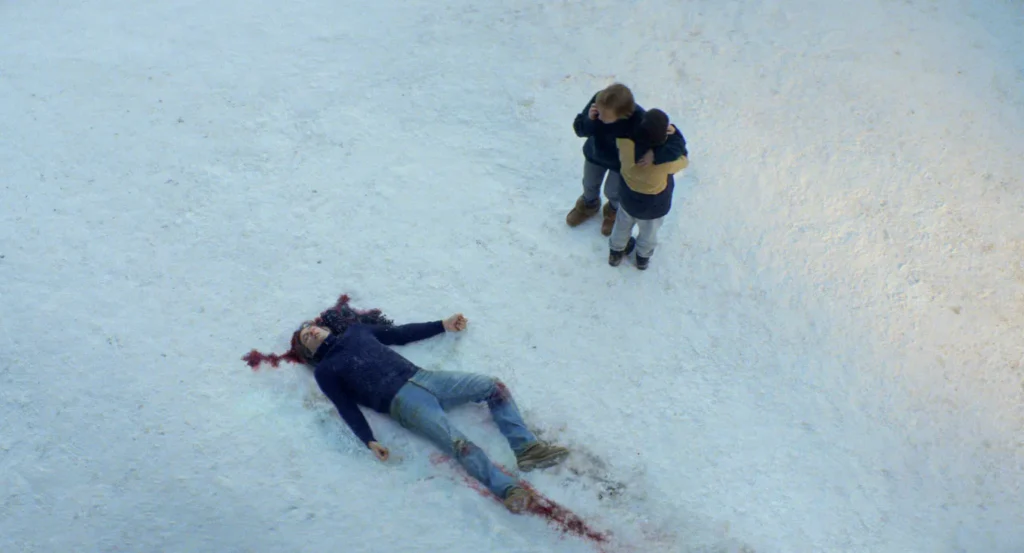
The winner of the coveted Palme d’Or, Justine Triet’s two-and-a-half-hour “Anatomie d’une chute” — “Anatomy of a Fall” — channels Otto Preminger in its title and courtroom setting, Alfred Hitchcock in its propulsive dissection of character and plot and 50 Cent in its tongue-in-cheek soundtrack. An instrumental version of the latter’s steel pan-heavy “P.I.M.P.” plays so many times both as scene setting and, later, as evidence in a murder trial, that the song soon becomes a focused metaphor for the film itself: a deceptively intricate banger so hyper-focused on provoking that even its evocation of sexuality ceased to be erotic, turning it instead into a surgical inquiry on modern notions of gender (this was unlikely 50 Cent’s intent, but it’s certainly Triet’s).
Sandra Hüller — co-star of “The Zone of Interest” — plays Sandra, a short-haired, borderline butch German author charged with the murder of her French husband, and forced to speak broken French in court. Her visually impaired teenage son Daniel (Milo Machado-Graner) was the only witness, as it were, to his father’s death by plummet, from a high window in their isolated mountain cabin. The film places Sandra’s imperfect memories of her imperfect marriage at odds with the ruthless legal strategies she’s forced to undertake to maintain her innocence, while a relentless prosecution probes at her femininity and (bi)sexuality. As Daniel is made to bear witness to the discomforting ins and outs of his parents’ relationship, reaching into his own adolescent memory all the while, Triet crafts a detailed character portrait and places it intentionally at odds with a clinical, outside-in view of human complications, allowing a simultaneous depiction of complex vulnerability and its perverted reduction, which holds utmost relevance in the age of the social media magnifying glass, wherein nuance is often lost.
Anatomy of a Fall has been acquired for distribution by Neon later this year.
2. Close Your Eyes
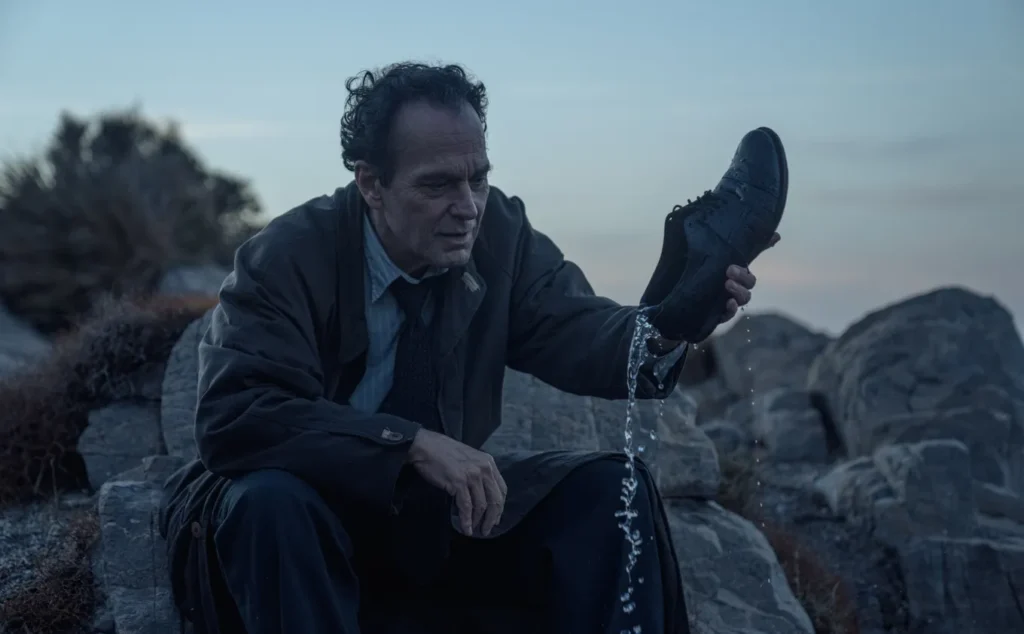
Victor Erice’s first directorial effort in over 30 years, “Cerrar los ojos” (“Close Your Eyes”) caused a considerable stir when it was chosen out-of-competition without the filmmaker being properly informed. The Spanish legend penned a fiery letter to Cannes artistic director Thierry Frémaux, but even this active controversy couldn’t overshadow a film that feels this enormous in its conception of cinema-as-memory, via a story that’s as much a detective procedural as it is a trip through time, via the medium of cinema.
After opening with an extended, operatic sequence about a wealthy man in search of his missing daughter — a scene that recalls elements of “The Shanghai Spell,” which Erice was once set to direct — “Close Your Eyes” soon reveals this footage to be the film reels of an incomplete project, abandoned many years ago when its lead actor mysteriously vanished. Now, with a TV documentary about this disappearance in the works, the movie’s retired, reclusive director Miguel Garay (Manolo Solo) — who, like Erice, left feature filmmaking behind for many years — emerges from his isolation and begins a search for his missing comrade, even though the world believes him dead. A film that lives and breathes in the introspective silences between lengthy dialogue scenes, the nearly three-hour “Close Your Eyes” is a deeply personal meditation on the relationship between real and cinematic histories. The 83-year-old Erice filters his artistic grievances and anxieties through a seemingly doomed search for a tangible embodiment of a past, one that lives just out of reach. The result is an emotionally wrenching final hour that brings Miguel face to face with a warped version of a history he knows intimately through celluloid that he wasn’t prepared to see up close.
Close Your Eyes is still seeking North American distribution.
3. Fallen Leaves
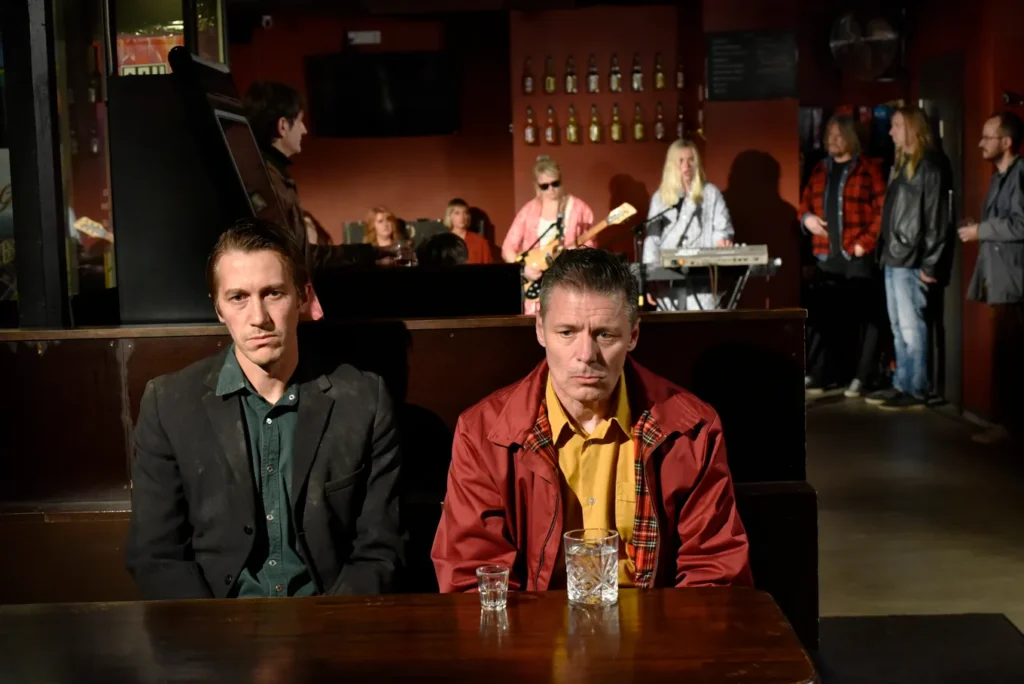
The winner of this year’s Jury Prize (the festival’s bronze medal, behind the Grand Prix), “Kuolleet Lehdet” or “Fallen Leaves” is another gentle dramedy from Finnish filmmaker Aki Kaurismäki. Playing like an update and epilogue to his late ’80s series on working class woes — “Shadows in Paradise,” “Ariel,” and “The Match Factory Girl,” collectively dubbed the “Proletariat Trilogy” — the film sees Kaurismäki once again balancing sardonic characters and the genuine romance that grounds them.
The absurdist rom-com clocks in at a mere 80 minutes, during which it introduces Ansa (Alma Pöysti), a lonely supermarket cashier (much like the protagonist of “Shadows in Paradise”), and construction worker Holappa (Jussi Vatanen), an irresponsible alcoholic to whom she’s inexplicably drawn. Beset by minor obstacles that become magnified in the grand scheme of their lives — like losing each other’s phone numbers, or never learning each other’s names — the wry duo forms a quiet bond over a film by Jim Jarmusch, a fittingly deadpan coda to Kaurismäki’s own approach. With news of the Ukraine invasion blaring constantly over the radio, the couple’s numerous missed connections are placed into perspective in a tongue-in-cheek manner. And yet, the film proves to be a deft handshake between irony and sincerity, a tonal nexus seldomly expressed with such clear-eyed emotional precision, though one that Kaurismäki has spent decades perfecting. The ultimate cinematic self-reflection.
Fallen Leaves has been acquired for distribution by MUBI later this year.
4. May December
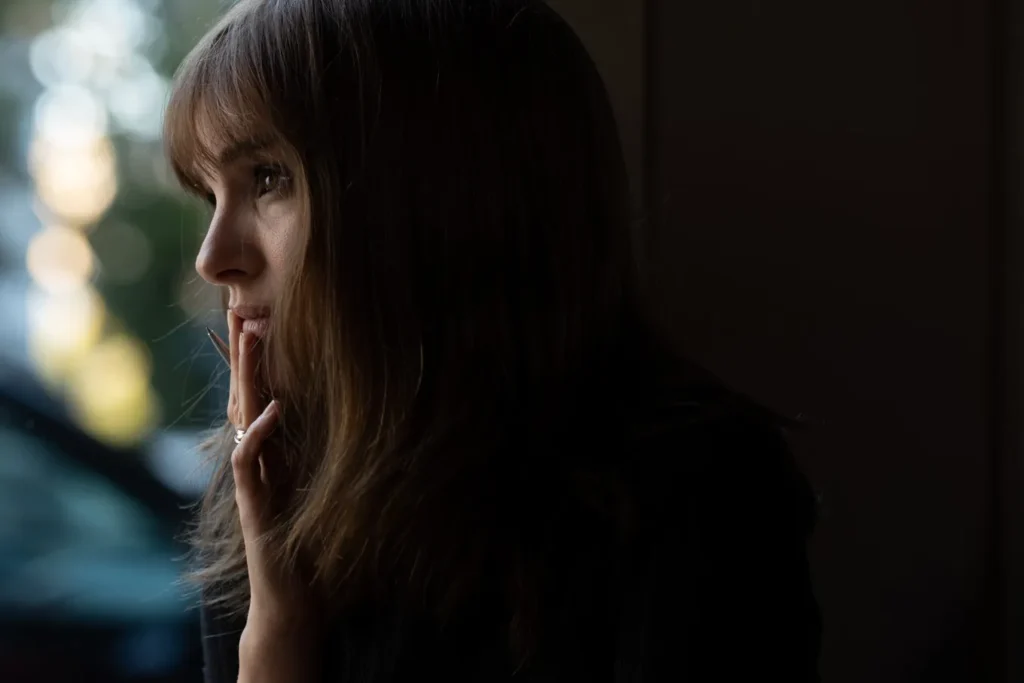
A tonal highwire act from Todd Haynes, “May December” sees Hollywood starlet Elizabeth Berry (Natalie Portman) shadowing a controversial woman she’s set to play in an upcoming biopic, Gracie Atherton-Yoo (Julianne Moore). Gracie, a woman in her 50s, is now happily married to her younger beau, the handsome 36-year-old Joe Yoo (Charles Melton), with whom she has three teenage children, but the couple made tabloid headlines decades ago when Gracie, a married adult, seduced Joe when he was only 13.
Elizabeth and Gracie share a polite, standoffish dynamic, but the actress’s artistic inquiry also triggers the slow and steady eruption of the Yoo family’s seemingly dormant past, yielding a tale of melodramatic proportions that’s as deviously funny as it is intensely riveting, thanks to a trio of lead performances that all carefully brush up against total emotional breakdowns. The more Elizabeth becomes entwined with Gracie, her husband and her children from two marriages, the more the cracks in the family’s tightly-controlled, carefully curated image begin to show, and this tale of subdued American suburbia — echoing Haynes and Moore’s own “Safe” from 1995 — explodes in typically Haynes-esque fashion, as the layers concealing the past begin to dissipate, bringing it more clearly into view.
May December has been acquired for distribution by Netflix later this year.
5. The Pot-Au-Feu
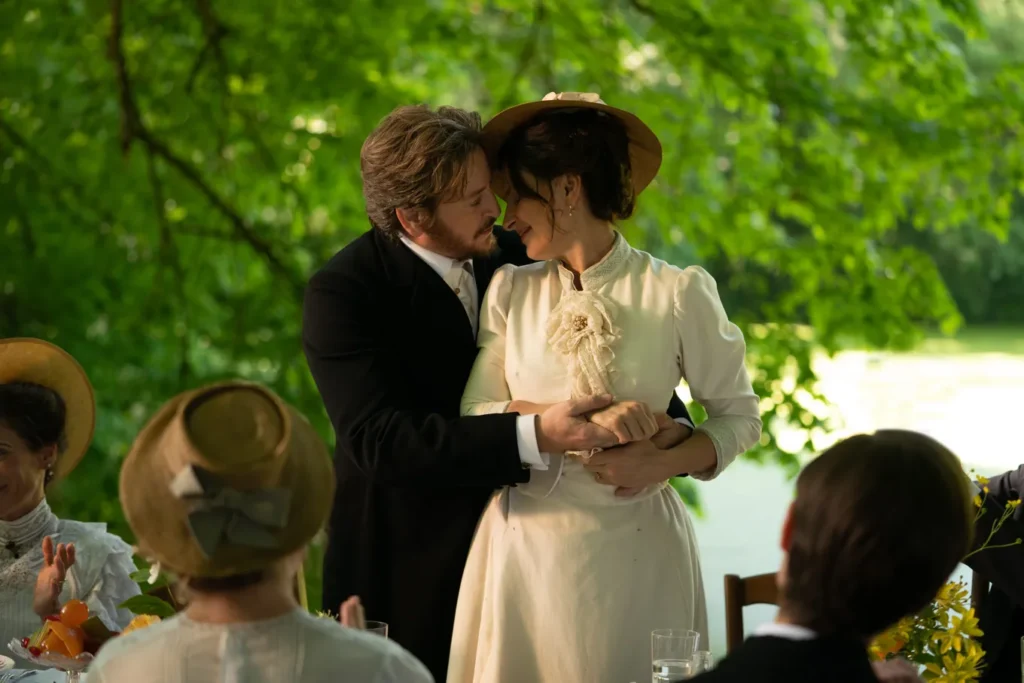
Food-as-artistry has long had its stay, as a vessel for cinematic nostalgia. “La passion de Dodin Bouffant,” or “The Pot-Au-Feu”presents a glowing vision not only of food as a love language, but of food as romance itself, containing memories of love, as Vietnamese French filmmaker Trần Anh Hùng — winner of the festival’s Best Director trophy — conceives of a 19th century countryside kitchen as a space of infinite possibility.
It’s a film that’s as deceptively simple yet delectable as its eponymous meat-and-veggie broth. It’s a warm, comforting, and above all, exquisite depiction of a particular kind of love, born from both desire and mutual admiration. Eugénie (Juliette Binoche) has been the expert head cook for world-famous gourmet Dodin Bouffant (Benoît Magimel) for 20 years, a professional partnership that has given rise to world-renowned gastronomical creations. However, Eugénie values her independence just as much as Dodin values her, so when it comes time to act on their desires, the resultant narrative is a simmering game of romantic gestures by golden candlelight, wherein traditional courtship plays out by distinctly untraditional means, yielding a feast for the senses, and for the soul.
The Pot-Au-Feu is still seeking North American distribution.
6. Trailer of the Film That Will Never Exist: “Phony Wars”
It’s hard not to wish Jean-Luc Godard were alive to witness the masterful schadenfreude of a short film causing numerous walkouts despite a mere 20-minute runtime. There’s nothing grossly offensive about the content of “Film annonce du film qui n’existera jamais: ‘Drôles de Guerres’” (or “Trailer of the Film That Will Never Exist: ‘Phony Wars’”) but it’s a stunning example of how, right until the end of his life, Godard remained passionately obsessed with chiseling through hardened exterior of cinematic form until he touched its vulnerable soft tissue, causing the very concept of the moving image to writhe and crack open from within.
That “Phony Wars” is both a pitch for a never-to-be-finished project as well as a complete work of art in its own right is a testament to Godard’s never-ending search for meaning through the cinematic. He had long wanted to create an adaptation of Charles Plisnier’s 1937 novel “Faux passeports” — after his digital experiments “Goodbye to Language”and “The Image Book,” he sought to shoot this on a number of different film formats — but pandemic-related delays led him to shift gears. He created, instead, a conceptual “trailer” for the film as though it already existed, taking the form of a lengthy slideshow with rough sketches, layered photographs and scribbled annotations all taped together on Xerox paper, along with his own voiceover, laden with blistering political allusions so directly confrontational and politically incendiary one might seldom find them in actual movies. The resultant project was one Godard even called his best film, an experiment equally about the nature and content of the visual, and the abruptness and discontinuity of the aural, resulting in a piece that deconstructs the meaning behind moving images by breaking them down to a primordial form. Watching it is akin witnessing memories of images themselves, before they ever existed.
Phony Wars is still seeking North American distribution.
Your support is crucial...As we navigate an uncertain 2025, with a new administration questioning press freedoms, the risks are clear: our ability to report freely is under threat.
Your tax-deductible donation enables us to dig deeper, delivering fearless investigative reporting and analysis that exposes the reality beneath the headlines — without compromise.
Now is the time to take action. Stand with our courageous journalists. Donate today to protect a free press, uphold democracy and uncover the stories that need to be told.
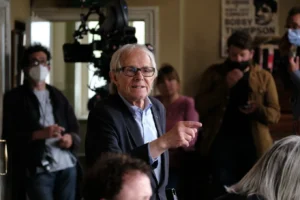
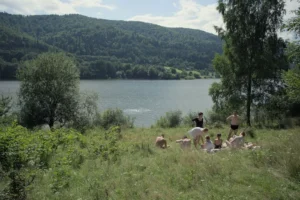




You need to be a supporter to comment.
There are currently no responses to this article.
Be the first to respond.